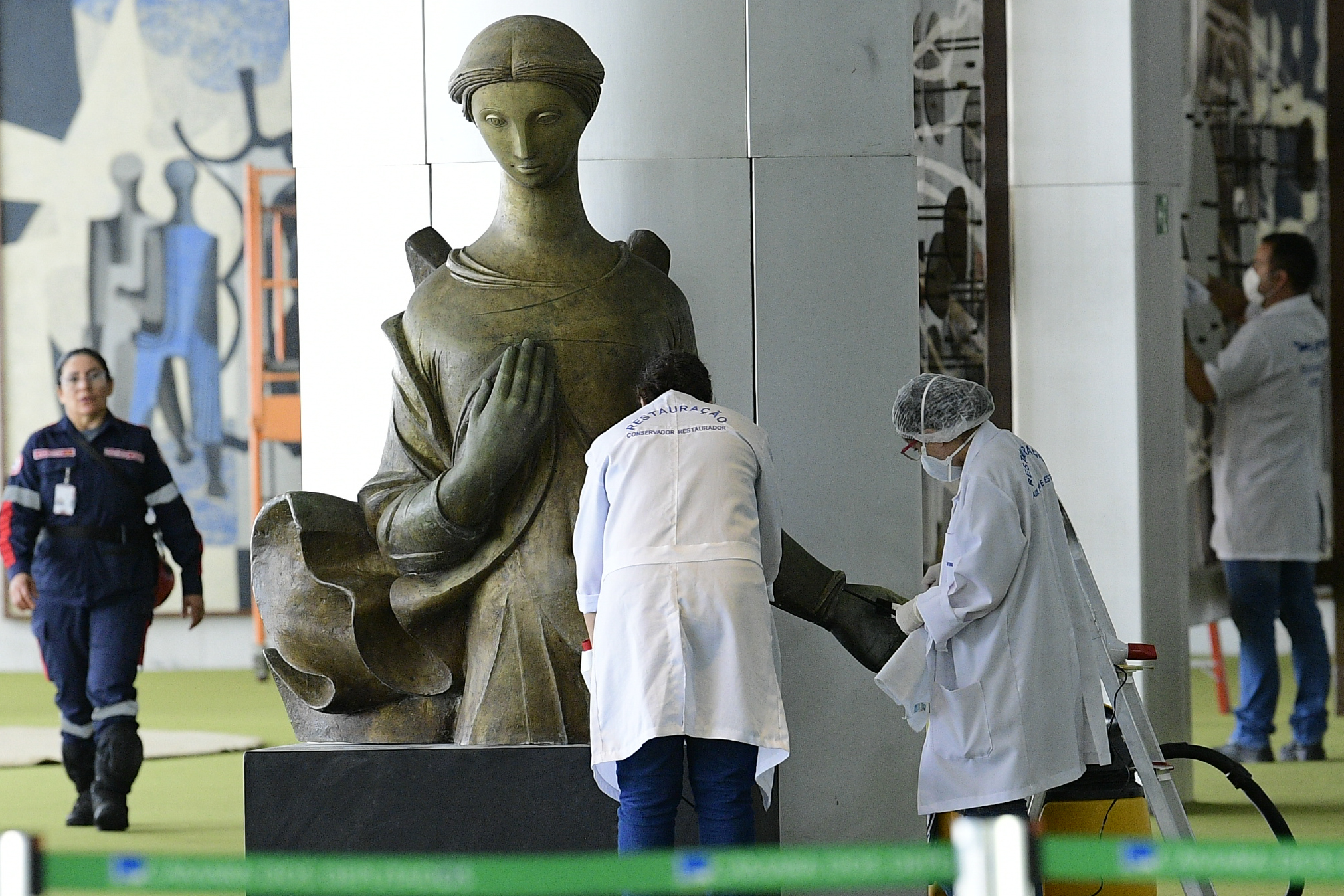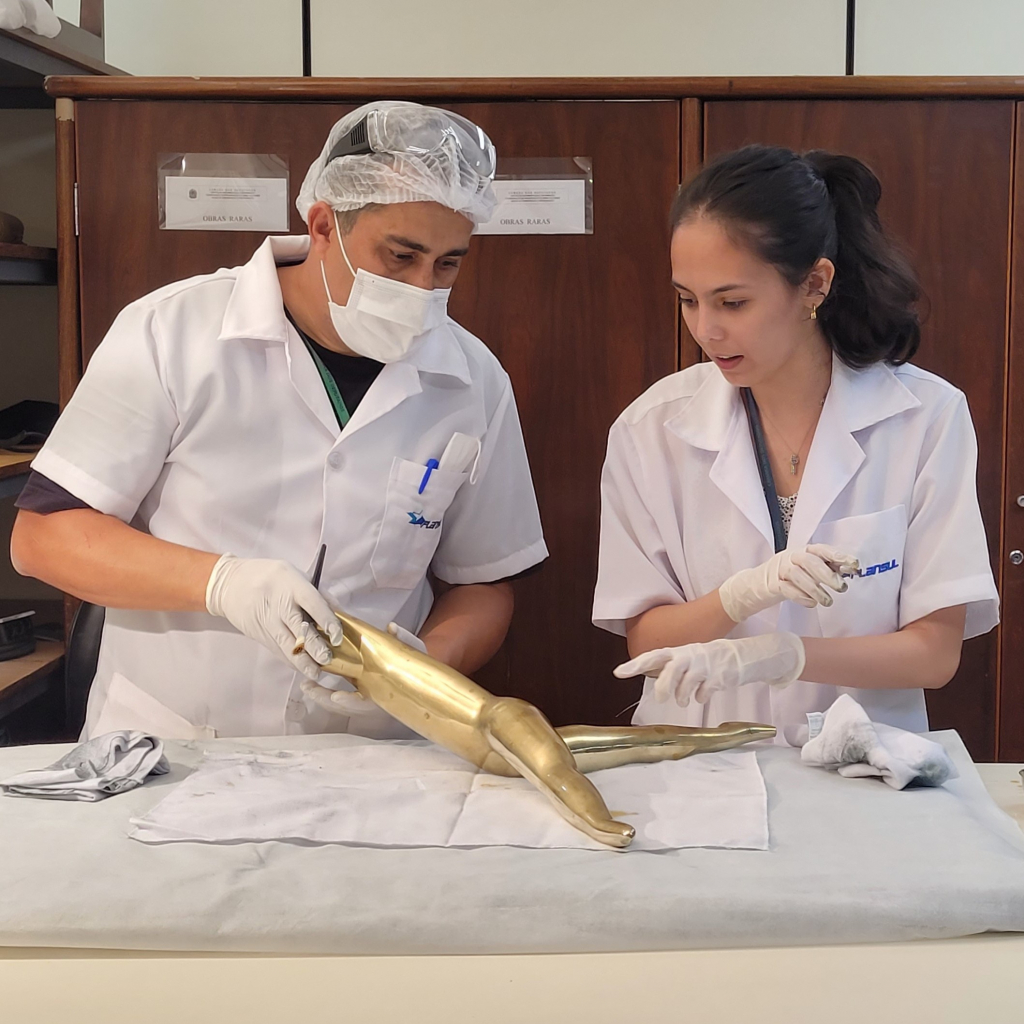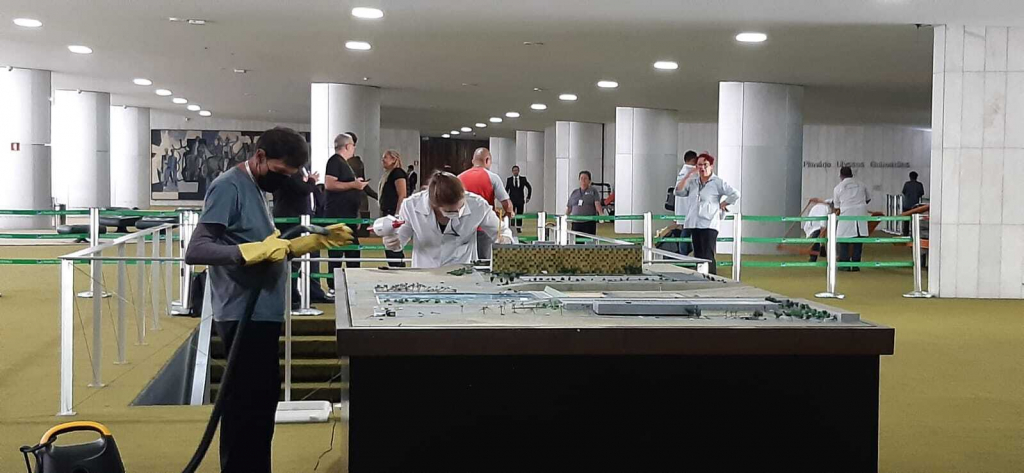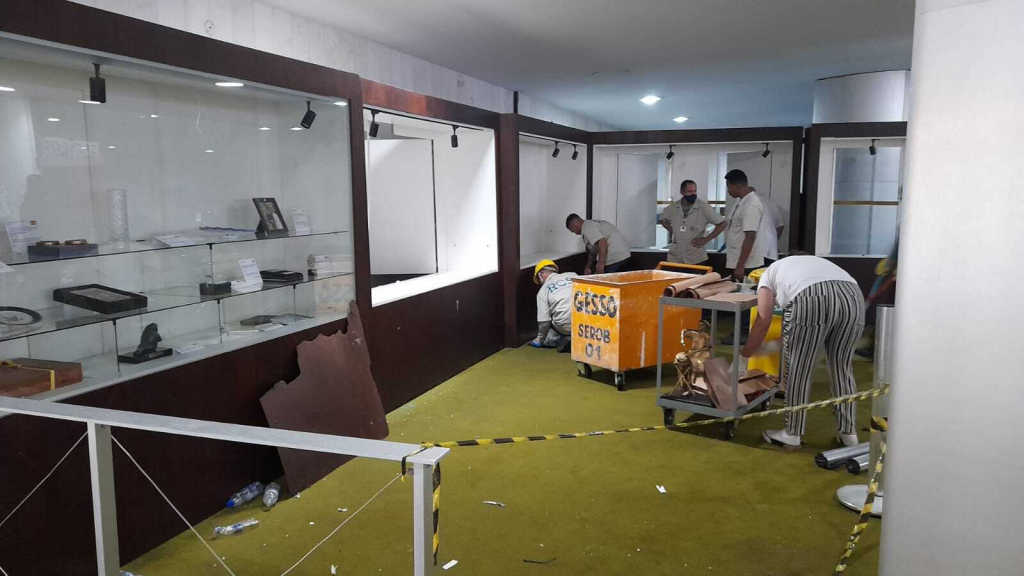Our risk management methodology was put into practice to help safeguard Brazil’s cultural heritage in the recent events of vandalism in Brasília.
 Criador: Pedro França | Crédito: Pedro França/Agência Senado | Direitos autorais: Senado Federal do Brasil
Criador: Pedro França | Crédito: Pedro França/Agência Senado | Direitos autorais: Senado Federal do BrasilBrazil’s Chamber of Deputies is housed in the National Congress Palace in Brasília, the country’s capital. The palace, designed by well-known architect Oscar Niemeyer, was created in 1960 and became a UNESCO World Heritage site in 1987. It holds a significant collection related to Brazil’s legislative history, including books, manuscripts and audio-visual materials, as well as important pieces of furniture, paintings and decorative artworks integrated into the building’s architecture. This rich and diverse cultural heritage was targeted by acts of vandalism on 8 January 2023, alongside other invaluable heritage assets of Brazil’s Presidential Palace and Supreme Court.
Despite the scale and intensity of such vandalism, the Chamber of Deputies Preservation Services team responded rapidly and effectively. Less than 24 hours after the attack, the situation concerning the affected heritage artefacts and building elements had already been stabilized. Nearly all the heritage items exposed to vandalism have been successfully rescued and safeguarded, with only two still missing and a few more critically damaged but already undergoing conservation-restoration treatment.
 Câmara dos Deputados do Brasil
Câmara dos Deputados do Brasil“We [the Preservation Services] knew the collections well, and the institution knew us well, so we have been immediately informed, and one of the first teams entering the scene. Although still in the implementation phase, the actions to treat vandalism risk described in our Plan have been quite successful, even though we still have much to learn and fine tune,” said Ms Azevedo.
“I think we can say that this meant putting into practice all the theory we have seen, and it worked very well, thanks to the knowledge disseminated by ICCROM. In a way, you helped us save our memory, and this is priceless.”
Furthering this collaboration with Brazil’s heritage organizations, ICCROM has made available its dedicated web and mobile app for rapid, post-event damage and risk assessment to help define priorities in the aftermath of emergencies. This new tool has been developed and field-tested as part of ICCROM’s First Aid and Resilience for Cultural Heritage in Times of Crisis (FAR) Programme.
 Câmara dos Deputados do Brasil
Câmara dos Deputados do Brasil Câmara dos Deputados do Brasil
Câmara dos Deputados do Brasil